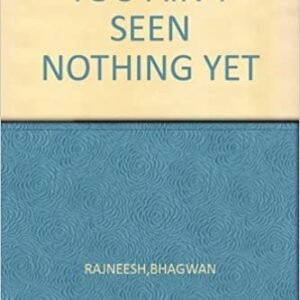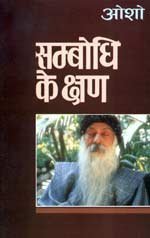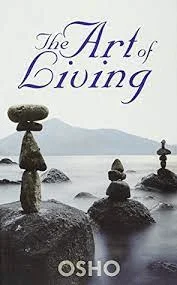Product Description
The most fundamental question before Gautama the Buddha was, “What is wisdom?”
And the same is true for everyone. Down the ages the sages have been asking, “What is
wisdom?” If it can be answered by you, authentically rooted in your own experience, it
brings a transformation of life.
You can repeat the definitions of wisdom given by others, but they won’t help you. You
will be repeating them without understanding them, and that is one of the pitfalls to be
avoided on the path. Never repeat what you have not experienced yourself. Avoid
knowledge, only then can you grow in wisdom.
Knowledge is something borrowed from others, wisdom grows in you. Wisdom is
inner, knowledge outer. Knowledge comes from the outside, clings to your surface,
gives you great pride and keeps you closed, far far away from understanding.
Understanding cannot be studied; nobody can teach it to you. You have to be a light
unto yourself. You have to seek and search within your own being, because it is already
there at the very core. If you dive deep you will find it. You will have to learn how to
dive within yourself — not in the scriptures, but within your own existence.
The taste of your own existence is wisdom. Wisdom is experience, not information.
Buddha renounced the world; it is reported in all the scriptures, but the report is not
given in the true context. It is reported that the Buddha renounced the world because he
was against the world — because unless you renounce the world you cannot gain the
eternal, the other world, the other shore. This is giving a totally false interpretation to
Buddha’s great renunciation.
He certainly renounced the world, but not to gain anything in the other. If there is any
motive in your renunciation, it is not radical enough, it is not a revolution. It is again the
same old business, the same old bargaining mind; it is based in desire and desire is the
world. The world does not consist of things, the world consists of motives, desires,
ambitions.
If you renounce the world to gain something, whatsoever it is — nirvana,
enlightenment, moksha, freedom, truth or God, whatsoever it is — if you renounce the
world to gain something, it is not renunciation.
Hence I will not say that Buddha renounced the world to attain something. The very
idea of attaining something IS the world. The very idea of attaining something is to live
in imagination, is to live in the future. And a man of understanding lives in the present,
not in the future. A man of understanding does not really renounce the world — the
world simply falls from him, the world simply becomes irrelevant; it loses meaning. His
insight is such that he can see through and through the falsity of all desire — not to
attain something, but seeing the futility of desire, desiring ceases. That is true
renunciation.














Reviews
There are no reviews yet.